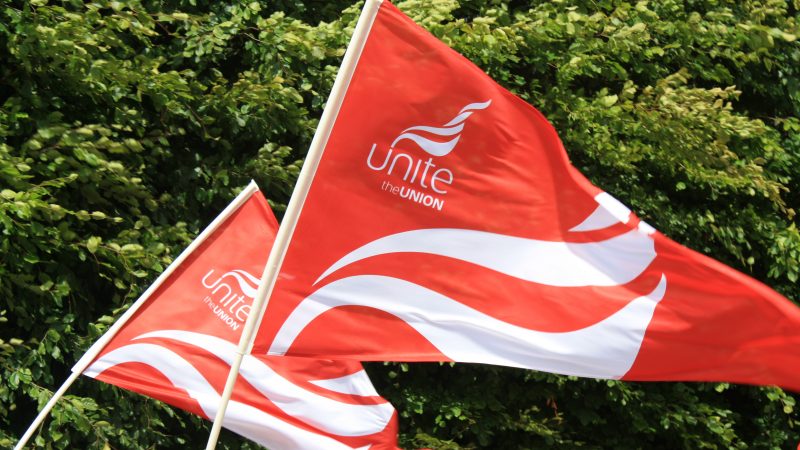
Sharon Graham has accused the government of “preparing to pull the plug” on its support for consumers facing spiralling energy bills, following the announcement of the new energy price cap.
The energy regulator Ofgem confirmed today that the price cap will fall from £4,279 to £3,280 from April as a result of falling wholesale prices.
But the decrease will not directly impact household energy bills, as they are currently covered by the government’s energy price guarantee (EPG), which is due to rise in April from £2,500 to £3,000 a year for a typical household. The fall in the price cap will, however, reduce the costs faced by the government.
The Unite general secretary said: “Ofgem’s latest manoeuvres on the energy price cap do next to nothing to ease the pressure on workers and communities already haunted by the arrival of their fuel bills.
“This out-of-touch government is clearly preparing to pull the plug on protecting consumers and is totally abdicating any responsibility for dealing with the runaway profiteering of energy companies.
“A matter of days ago, Centrica/British Gas announced its 2022 profits had trebled to more than £3bn. This year, it’s planning a £500m share buy-back for a bonanza payout for its shareholders. The British economy is broken for workers – different choices need to be made.”
The Resolution Foundation estimated in January that the energy bills of a typical household in 2023/24 will be 43% higher than in 2022/23 as a result of the increase in the EPG – which limits the amount suppliers can charge per unit of energy used – and the government’s energy bills support scheme coming to an end.
The energy bills support scheme, which saw households receive £400 off their energy bills spread across six monthly instalments, is scheduled to end in March. The Chancellor Jeremy Hunt has resisted calls to cancel the rise in the EPG, which is due to take place in April.
The energy price cap indicates how much a consumer on a supplier’s basic tariff would pay if the EPG were not in place. It rose to £4,279 from the beginning of January, up from £1,277 this time last year.
Also commenting on Ofgem’s announcement, Ed Miliband again criticised the government for “refus[ing] to implement a proper windfall tax” while oil and gas companies “rake in the windfalls of war”.
The Shadow Climate and Net Zero Secretary said: “Rishi Sunak is too weak to stand up for the British people. Only Labour is on your side – with a mission to tackle the cost-of-living crisis now and a long-term plan to cut bills for good by making Britain a clean energy superpower.”
According to TUC analysis, released today, typical energy bills will have risen nine and a half times faster than wages over the last year – with bills due to be 52% higher in April 2023 than they were in April 2022, while nominal wages are forecast to have grown 5.5% over the same period.
TUC general secretary Paul Nowak said: “Energy bills are out of control. The government must cancel April’s hike. With the cost of wholesale gas plummeting ministers have no excuse for not stepping in.
“Families across Britain are at breaking point. Prices are skyrocketing, but wages are failing to keep pace with the cost of living.”
TUC analysis last week found that energy bills will account for up to 10% of an average salary from April following the increase in the EPG.
The union body calculated that the average energy bill will rise to £250 per month from April, equivalent to a tenth of the UK average salary and more than double the average monthly bill in March last year.




More from LabourList
‘Labour’s quiet quest for democratic renewal’
‘Labour promised to make work pay. Now it must deliver for young people’
‘Council Tax shouldn’t punish those who have the least or those we owe the most’